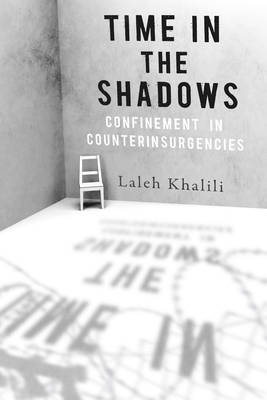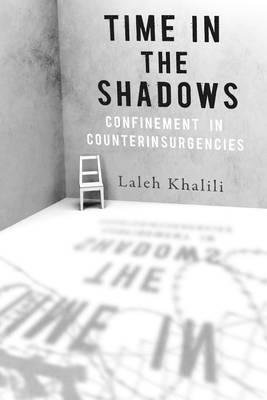
- Afhalen na 1 uur in een winkel met voorraad
- Gratis thuislevering in België vanaf € 30
- Ruim aanbod met 7 miljoen producten
- Afhalen na 1 uur in een winkel met voorraad
- Gratis thuislevering in België vanaf € 30
- Ruim aanbod met 7 miljoen producten
Zoeken
€ 48,95
+ 97 punten
Uitvoering
Omschrijving
Detention and confinement--of both combatants and large groups of civilians--have become fixtures of asymmetric wars over the course of the last century. Counterinsurgency theoreticians and practitioners explain this dizzying rise of detention camps, internment centers, and enclavisation by arguing that such actions "protect" populations. In this book, Laleh Khalili counters these arguments, telling the story of how this proliferation of concentration camps, strategic hamlets, "security walls," and offshore prisons has come to be. Time in the Shadows investigates the two major liberal counterinsurgencies of our day: Israeli occupation of Palestine and the U.S. War on Terror. In rich detail, the book investigates Abu Ghraib, Guantánamo Bay, CIA black sites, the Khiam Prison, and Gaza, among others, and links them to a history of colonial counterinsurgencies from the Boer War and the U.S. Indian wars, to Vietnam, the British small wars in Malaya, Kenya, Aden and Cyprus, and the French pacification of Indochina and Algeria. Khalili deftly demonstrates that whatever the form of incarceration--visible or invisible, offshore or inland, containing combatants or civilians--liberal states have consistently acted illiberally in their counterinsurgency confinements. As our tactics of war have shifted beyond slaughter to elaborate systems of detention, liberal states have warmed to the pursuit of asymmetric wars. Ultimately, Khalili confirms that as tactics of counterinsurgency have been rendered more "humane," they have also increasingly encouraged policymakers to willingly choose to wage wars.
Specificaties
Betrokkenen
- Auteur(s):
- Uitgeverij:
Inhoud
- Aantal bladzijden:
- 363
- Taal:
- Engels
Eigenschappen
- Productcode (EAN):
- 9780804778336
- Verschijningsdatum:
- 21/11/2012
- Uitvoering:
- Paperback
- Formaat:
- Trade paperback (VS)
- Afmetingen:
- 150 mm x 226 mm
- Gewicht:
- 476 g

Alleen bij Standaard Boekhandel
+ 97 punten op je klantenkaart van Standaard Boekhandel
Beoordelingen
We publiceren alleen reviews die voldoen aan de voorwaarden voor reviews. Bekijk onze voorwaarden voor reviews.







